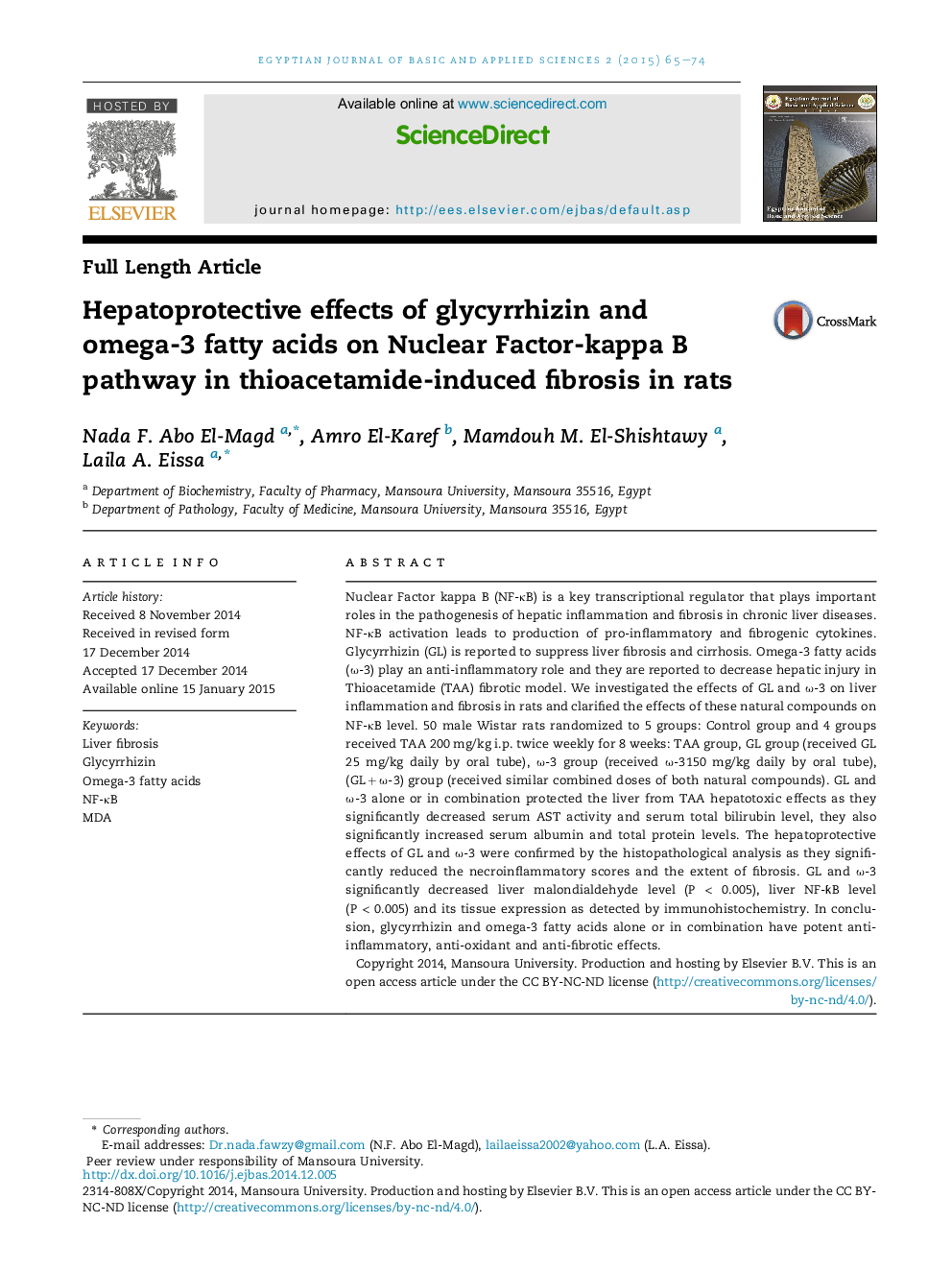| Article ID | Journal | Published Year | Pages | File Type |
|---|---|---|---|---|
| 558980 | Egyptian Journal of Basic and Applied Sciences | 2015 | 10 Pages |
Nuclear Factor kappa B (NF-κB) is a key transcriptional regulator that plays important roles in the pathogenesis of hepatic inflammation and fibrosis in chronic liver diseases. NF-κB activation leads to production of pro-inflammatory and fibrogenic cytokines. Glycyrrhizin (GL) is reported to suppress liver fibrosis and cirrhosis. Omega-3 fatty acids (ω-3) play an anti-inflammatory role and they are reported to decrease hepatic injury in Thioacetamide (TAA) fibrotic model. We investigated the effects of GL and ω-3 on liver inflammation and fibrosis in rats and clarified the effects of these natural compounds on NF-κB level. 50 male Wistar rats randomized to 5 groups: Control group and 4 groups received TAA 200 mg/kg i.p. twice weekly for 8 weeks: TAA group, GL group (received GL 25 mg/kg daily by oral tube), ω-3 group (received ω-3150 mg/kg daily by oral tube), (GL + ω-3) group (received similar combined doses of both natural compounds). GL and ω-3 alone or in combination protected the liver from TAA hepatotoxic effects as they significantly decreased serum AST activity and serum total bilirubin level, they also significantly increased serum albumin and total protein levels. The hepatoprotective effects of GL and ω-3 were confirmed by the histopathological analysis as they significantly reduced the necroinflammatory scores and the extent of fibrosis. GL and ω-3 significantly decreased liver malondialdehyde level (P < 0.005), liver NF-ƙB level (P < 0.005) and its tissue expression as detected by immunohistochemistry. In conclusion, glycyrrhizin and omega-3 fatty acids alone or in combination have potent anti-inflammatory, anti-oxidant and anti-fibrotic effects.
Graphical abstractFigure optionsDownload full-size imageDownload as PowerPoint slide
